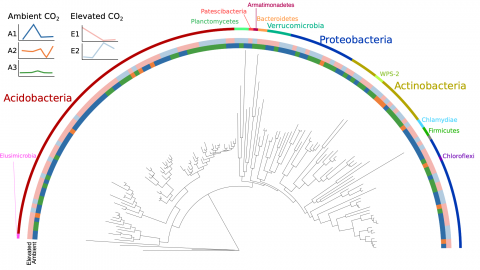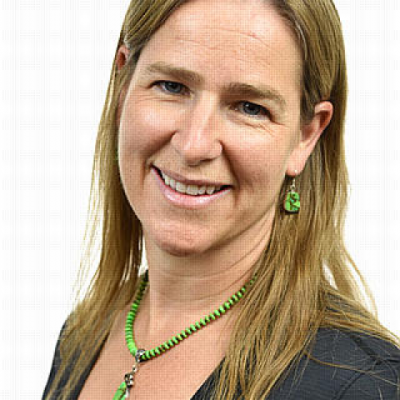Description
Boreal peatlands are important global carbon reservoirs that are particularly vulnerable to predicted climate changes such as increasing CO2 and temperature. Since microbial activities regulate the balance of carbon sequestered into soil organic matter or remineralized to CO2, characterizing their response to these environmental factors is critical to predicting how peatland ecosystems will affect climate-carbon cycle feedbacks. Here, we examined in-situ taxon-specific variation in microbial growth under long-term elevated CO2 and across a gradient of warming treatments in a northern Minnesota peat bog using quantitative stable isotope probing with 18O-water. Across temperatures, bacterial taxa were grouped according to the excess atom fraction 18O (EAF) of their genomes, a proxy for DNA replication and hence, growth. Taxon-specific growth across CO2 and temperature treatments clustered into relatively few response patterns. While a large portion of taxa showed little to no growth under ambient CO2, many of the same taxa grew rapidly under elevated CO2. We found support for phylogenetic conservation of response patterns among Acidobacteria and Proteobacteria, the two most abundant phyla in our data. Our results suggest certain taxa may be primed for new climate conditions and have a greater influence on carbon cycling with implications for future climate mitigation strategies.



